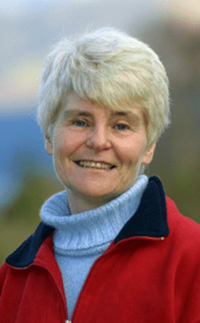Berlie Doherty

About Author
Children's author Berlie Doherty was born in Liverpool in 1943. She went to school at Upton Hall Convent School and read English at the University of Durham. She has completed a postgraduate certificate in Social Science at the University of Liverpool in 1966 and a postgraduate certificate in Education at the University of Sheffield in 1978. She received an honorary doctorate from the University of Derby in 2002.
She worked as a social worker, a teacher and a schools broadcaster for BBC Radio, before becoming a full-time writer in 1983. Her first novel for children, How Green You Are!, was published in 1982.
She has won the prestigious Carnegie Medal twice, for Granny was a Buffer Girl in 1986 and in 1991 for Dear Nobody, which dealt with the subject of teenage pregnancy. Granny was a Buffer Girl has recently been republished by Catnip, alongside Children Of Winter.
Other novels she has written include The Snake-Stone (1995) and Daughter of the Sea (1996). She has also written picture books, short story collections, and plays for television, radio and stage. In 1985, she was a Writer in Residence at Calderdale Libraries and continues to work closely with local schools and libraries.
Berlie Doherty has recently written the libretto for a children's opera, Wildcat, to be performed in Wales in 2007, partly translated into Welsh by Menna Elfyn. Her next book, Abela: The Girl Who Saw Lions, is published by Andersen Press in 2007 and will be her 50th book. It was inspired by a visit she made to Tanzania a few years ago to visit a friend who worked for VSO.
She still lives in Derbyshire and takes inspiration from the countryside and places around her. She says, 'I always place a story in a setting I know, even if I don't name it. If I feel familiar and comfortable in a landscape then I hope that readers will, too. If I can locate a story in a familiar place, it's much more powerful for me as a writer, as well.
She says she does not have a 'typical' writing day. 'I spend a lot of time thinking about all my books before I write them and that can be done anywhere. Once I have thought the idea through I start to write it, in longhand, in a hardback notebook which can also be done anywhere on a train, or in bed or by the fire. At that stage, it is still at the 'thinking stage' but I write it very quickly.
'After that, I start inputting it to the computer and the real work starts. I am much more disciplined at this stage, there is no background music or noise, I work in my writing room which is quiet. I get very absorbed and may also write in the evenings.' At this point, she adds, 'I will also be starting to think about my next book.'
Interview
No review available yet.
